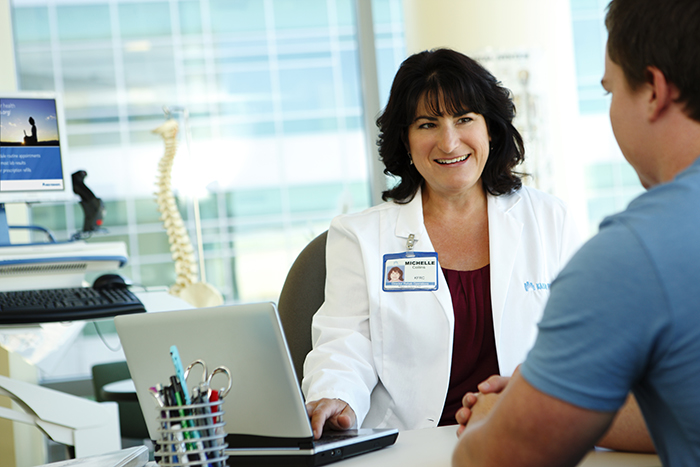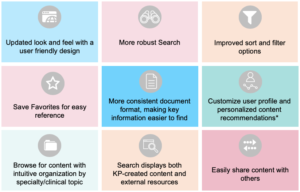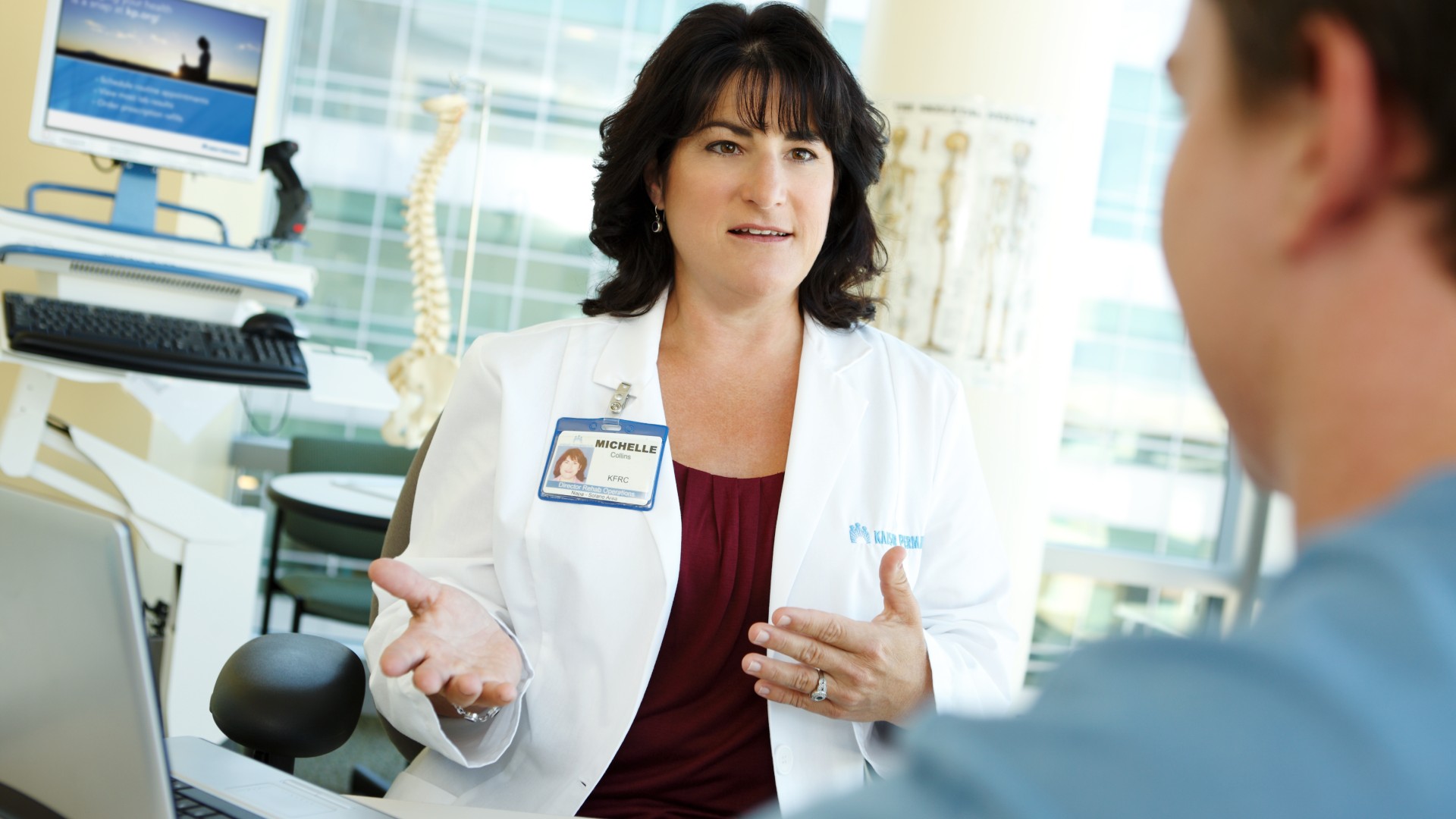Kaiser Permanente's report in NEJM AI details insights from a large-scale rollout of ambient AI clinical documentation technology.

Clinical knowledge at your fingertips
The latest refresh to our clinical library improves access to resources that inform important clinical decisions
By Eric Bottomley
The Permanente Federation
The phrase, “knowledge is power,” couldn’t be truer when it comes to clinical decision making.
It wasn’t long ago that many clinical decisions were informed by small printed notebooks stuffed into the pockets of lab coats. Although they held much of what physicians needed at the time, using them was often difficult – having to flip through hundreds of pages to answer time-sensitive questions during an office visit or before a hospital admission. It was also challenging to know if the approaches were truly the most current since updating and circulating these notebooks were a lengthy process within health care systems.
Today, retrieving clinical knowledge at the point of care has been made significantly easier thanks to innovative technology like Kaiser Permanente HealthConnect® – the largest private electronic health record (EHR) system in the world. It guides clinical decision-making by automatically pulling the latest evidence-based approaches and helping to inform physician recommendations with prompts that are tailored to their patient’s medical records, demographics, and care preferences. Whether the patient is due for a mammogram or has blood pressure that is above target, the physician is prompted with information that supports their decision making by bringing the best available research into practice.
Improving outcomes through a clinical library
This research is powered by information housed on Kaiser Permanente’s Clinical Library – a central online repository available within KP HealthConnect® that bridges Permanente physicians to more than 8,500 journals, 1,600 textbooks, 17,000 KP-developed resources and guidelines, and an extensive variety of external reference materials. It has helped Kaiser Permanente remain a national leader in quality care and has contributed to lower mortality rates from conditions like heart attacks, strokes, cancer, and sepsis.
In March, Kaiser Permanente’s Care Management Institute – a dedicated institution within the organization tasked with finding and spreading new and improved ways of doing things – refreshed the library with a variety of new search and personalization features that help patients and physicians get more out of each visit.
Getting more out of each visit
Physicians can access the Clinical Library directly through any KP-issued web-enabled device to research conditions and recommended treatments or address other questions that may arise during an office visit. In its latest refresh, a variety of newly embedded features have made it even easier for clinicians to find what they’re looking for, including the following:
 “The Clinical Library is personalizing the way clinicians retrieve information with search features, recommendations, and saved content that’s unique to each user accessing the system,” says Craig Robbins, MD, medical director of the Center for Clinical Information Services at Kaiser Permanente’s Care Management Institute.
“The Clinical Library is personalizing the way clinicians retrieve information with search features, recommendations, and saved content that’s unique to each user accessing the system,” says Craig Robbins, MD, medical director of the Center for Clinical Information Services at Kaiser Permanente’s Care Management Institute.
The Clinical Library has an “Ask a Librarian Feature” unique to Kaiser Permanente that enables clinicians to live chat with clinical librarians who can help them retrieve information quickly and conveniently through a chat window or through text messages. “Features like ‘Ask a Librarian’ help us tailor information to individual clinicians’ personal needs and disciplines so that clinical questions and follow-up discussions can be resolved in the fastest and most effective way possible,” says Dr. Robbins, adding that although other health systems have medical libraries of their own, Kaiser Permanente is unique in its advanced search functions and personalization features, which enable real-time conversations between clinical librarians and practitioners.
Clinicians who are away from their computer for most of the day can access these features from their smartphone or tablet.
The Clinical Library also reaches beyond the exam room when it comes to patient education. A number of physicians take advantage of the Clinical Library’s extensive collection of patient educational materials – like Frequently Asked Questions – and can send patients home with these materials to support their treatment. Many of them can be inserted into an after-visit summary that is provided online to patients at the end of their appointments. This helps to ensure patients have the information needed to continue their treatment at home and know when to come back for another visit if their symptoms continue.
Powered by research
Kaiser Permanente operates one of the largest non-university research programs in the United States – with approximately 2,000 studies in progress at any given time and publishing more than 1,000 articles annually. These studies explore a number of health-related topics using data from KP HealthConnect® and help inform Kaiser Permanente national clinical guidelines housed on the Clinical Library.
Each national guideline has been rigorously developed by considering the research evidence, potential benefits and harms of treatment options, patient preferences, and the resources needed for different approaches. They undergo an extensive review process and are endorsed by Kaiser Permanente’s national guideline development teams – which include clinical leaders appointed from each region. The team partners with the Care Management Institute to continuously maintain the Clinical Library by pulling in experts from across the country who weigh in on a variety of clinical issues to identify and spread the latest evidence-based practices.
“Our care teams feel confident knowing that every KP clinical recommendation in our Clinical Library is backed by research and vetted by some of the best clinical experts and evidence methodologists across Kaiser Permanente,” says Dr. Robbins. “We’re an evidence-based organization that takes a systematic approach to caring for our patients and our Clinical Library continuously supports us in delivering the right care, at the right time, in the right place.”


